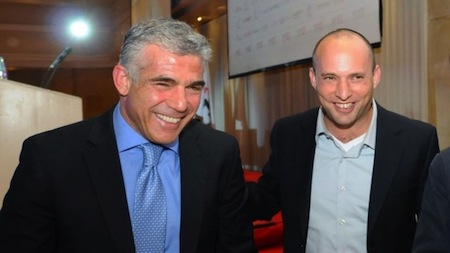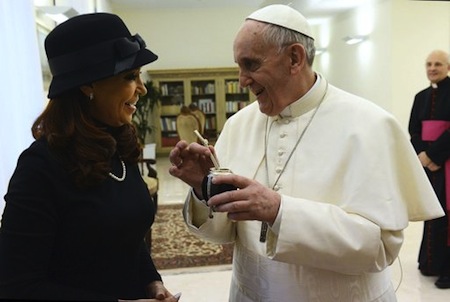<See below Suffragio’s preview of Venezuela’s April 2013 presidential election, followed by a real-time listing of all coverage of Venezuelan politics.>
Venezuelans will go to the polls on April 14 to select a successor to Hugo Chávez, who died on March 5, 2013, just months after winning reelection to a fourth term in October 2012.![]()
Shortly after winning reelection, Chávez returned to Cuba for further treatment for a (still unspecified) illness related to cancer — a cancer that turned out to be terminal. His inauguration on January 10 came and went, and much of Venezuela spent early 2013 in a state of suspended animation waiting for Chávez to either improve or worsen.
Chávez, who took power after the 1998 election, anointed his newly appointed vice president, Nicolás Maduro, the former foreign minster, as his preferred successor, and Maduro is running as the candidate of the governing Partido Socialista Unido de Venezuela (PSUV, or United Socialist Party of Venezuela) to carry forward the chavismo project.
His opponent will be the governor of Miranda state, Henrique Capriles, who lost the October 2012 presidential race to Chávez, and who represents the broad united opposition coalition, the Mesa de la Unidad Democrática (MUD, the Democratic Unity Roundtable).
NOTE: I will be in Venezuela covering the lead-up to the election from April 9 to 16 — if you’re in Caracas and will be around, drop me a line.
— March 19, 2013
Please note below Suffragio‘s prior coverage of Venezuelan politics:
Politics turns violent in Venezuela
February 20, 2014
SiriusXM: More thoughts on Venezuela and Argentina
February 5, 2014
The National Interest: Will Venezuela or Argentina be the first to crumble into economic crisis?
January 30, 2014
Chavismo offers no solutions for Venezuela’s violent crime
January 8, 2014
After local elections, what next for Venezuela’s government?
December 23, 2013
Show us the long-form, Nicolás (in which birtherism comes to Venezuela)
September 27, 2013
Where Capriles and the Venezuelan opposition go from here
August 20, 2013
Pragmatic Merentes winning control over Venezuela economic policy — but to what end?
August 17, 2013
It’s Diosdado Cabello’s world, the rest of Venezuela is just living in it
June 4, 2013
We’re starting to see what Madurismo will look like in Venezuela
May 8, 2013
Gettin’ raucous in Caracas
May 1, 2013
CNE agrees to 100% audit of Venezuelan votes
April 19, 2013
The National Interest: Chávez’s radical antics provide space for progressive Latin American left
April 17, 2013
Photo essay: Caprilistas block traffic in Caracas suburb to protest fraud
April 15, 2013
A primer on the MUD, Venezuela’s broad opposition coalition
April 15, 2013
The Atlantic: Chavismo is a continuity of — not a rupture from — the petrostate
April 15, 2013
The New Republic: Venezuela’s economy is tumbling despite oil prices over $100/barrel
April 15, 2013
Cabello comments indicate cracks in the chavista high guard?
April 15, 2013
LIVE BLOG from Caracas: Election night in Venezuela
April 14, 2013
Photo essay: Political graffiti and street art in Caracas
April 13, 2013
What’s the deal with Venezuelan presidential campaigns and jumpsuits?
April 13, 2013
Capriles campaign optimistic with 48 hours to go — but can it win?
April 12, 2013
Livin’ la vida seca — the election dray law takes effect in Venezuela
April 12, 2013
Deutsche Welle: Growing U.S.-Venezuelan commercial ties won’t lead to diplomatic thaw if Maduro wins
April 12, 2013
A conversation with former U.S. ambassador to Venezuela, Patrick Duddy
April 12, 2013
The National Interest: Capriles could be the better guarantor of chavismo in Venezuela
April 12, 2013
Photo essay: A chavista party in central Caracas
April 11, 2013
Venezuela marks coup anniversary in leadup to election
April 11, 2013
A diatribe against arepas — and food policy in the Caribbean basin
April 11, 2013
Not a banana republic but an avocado economy
April 10, 2013
Maduro campaign active on penultimate campaign day in Caracas
April 10, 2013
The political geography of Caracas
April 10, 2013
Does Venezuela need its own Margaret Thatcher?
April 9, 2013
Lula’s Maduro endorsement highlights strategic Brazilian ties to Venezuela
April 2, 2013
The policy case for Capriles in Venezuela
April 1, 2013
The policy case for Maduro in Venezuela
April 1, 2013
Book review: ‘Comandante: Hugo Chávez’s Venezuela’ by Rory Carroll
March 29, 2013
In death, the Chávez cult has become even creepier
March 27, 2013
¡Hasta siempre, comandante!
March 23, 2013
Meet the new heir to Hugo Chávez: the feistier, populist Capriles 2.0
March 22, 2013
World leaders descend upon Chávez funeral: one photo but mil palabras
March 8, 2013
Should Capriles automatically get a second shot at Venezuela’s presidency?
March 6, 2013
Chávez’s death kicks off sudden presidential election in Venezuela
March 5, 2013
Despite Capriles win, regional elections a setback for Venezuelan opposition to Chávez
December 26, 2012
With Chávez’s health in doubt, regional Venezuelan elections assume greater importance
December 12, 2012
Chávez officially names Maduro as anointed successor
December 10, 2012
In naming Maduro as new VP, Chávez indicates preference for successor
October 11, 2012
Chávez headed for apparent narrow reelection in Venezuela
October 7, 2012
But really: can Henrique Capriles defeat chavismo?
October 7, 2012
Doubts surface in media about Capriles in Venezuelan presidential race
June 2, 2012
A shift in tone about Chávez’s health
April 6, 2012
Venezuelan presidential race a toss-up
March 23, 2012
And Chávez is back
March 19, 2012
Eventos, my dear boy, eventos
February 23, 2012
Can Henrique Capriles defeat chavismo?
February 14, 2012



